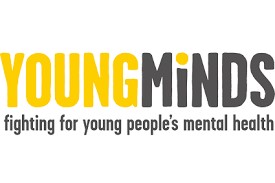Mental health & wellbeing during the Coronavirus outbreak
You do not have to be self-isolating in order for Coronavirus concerns to have an impact on your mental health. You might find yourself feeling worried about the spread of the virus and its impact on you and your loved ones. These feelings are normal and it is important we acknowledge them and remind each other to look after our physical and mental health. However, there are steps you can take to look after your mental health and wellbeing
1. Talk to someone about how you feel
Whilst it is normal to feel worried, if you are starting to feel overwhelmed, it is important to acknowledge your feelings and speak to someone, you trust, whether that is a friend, a family member, a teacher or a helpline. (Please see a list of helplines further down this page)
2.Know what you can do
If you are feeling scared or panicked by Coronavirus, remind yourself that there are practical things you can do. There is lots of advice on the NHS website.
You might feel anxious about this advice because it might trigger compulsive thoughts and unhelpful behaviours to do with washing and hygiene. If this happens to you, please talk to someone you trust about it. You could ask them to help you, and let people around you know what you find helpful and what you don't.
It can also help to have a few gentle and regular reminders up your sleeve if you start to feel anxious about washing or hygiene. Remember this advice is about caring for yourself and others, but there is a limit to what you can do – so whatever happens, try to be kind to yourself.
3.Don’t overexpose yourself to the news
Staying informed can make you feel in control but the constant news reports could also become overwhelming. Try to get your information from reputable websites such as the NHS website. If you do want to read or watch the news, try to limit the amount of time you spend and stick to regular intervals in the days. If you are finding it hard not to think about the news, try to plan some activities that you enjoy and which will take your mind of things, whether that’s going for a walk, chatting to a friend, watching a film or reading a book.
Do take a break from social media if you feel like the updates are getting too much. Remember you are in control of what you see on your feed, take breaks when you do feel like things are getting too much or mute and unfollow accounts that make you feel more worried.
4.Find things that help you feel calm
Like at any other time, it is important that you are not only looking after your physical health, but your mental health too. Think about some activities that can help when you are feeling overwhelmed, like breathing techniques, writing down how you feel, playing music or talking to a friend. Often things that distract you will help ease feelings of anxiety, but try to avoid turning to stimulants like cigarettes or alcohol, which can leave you feeling worse.
For more information and guidance please see the organisations listed below:
Childline
|
Childline Whatever your worry, whenever you need help, we're here for you online, on the phone, anytime. Website: www.childline.org.uk |
Free Helpline: 0800 1111
kooth
|
|
Website: www.kooth.com
The Mix
 The Mix is the UK’s leading support service for young people. We are here to help you take on any challenge you’re facing - from mental health to money, from homelessness to finding a job, from break-ups to drugs. Talk to us via online, social or our free, confidential helpline.
The Mix is the UK’s leading support service for young people. We are here to help you take on any challenge you’re facing - from mental health to money, from homelessness to finding a job, from break-ups to drugs. Talk to us via online, social or our free, confidential helpline.
Website: www.themix.org.uk
Helpline: 0808 808 4994
Text: Free, 24/7 crisis support across the UK. If you’re aged 25 or under, and are experiencing any painful emotion or are in crisis, you can text THEMIX to 85258
Samaritans
 24 hour confidential listening and support for anyone who needs it. (Adults included.)
24 hour confidential listening and support for anyone who needs it. (Adults included.)
Website: www.samaritans.org
Helpline: 116 123 FREE
Email – jo@samaritans.org Response Time – 24 hours.
Young minds
|
Website: www.youngminds.org.uk
Text: If you need urgent help text YM to 85258. It is free and confidential to text our service from the following major networks: |
EE, O2, Three and Vodafone. These include - BT Mobile, Tesco Mobile, Virgin Mobile, iD Mobile, Sky, Telecom Plus, Lebara and GiffGaff. Some Android phones issue a warning that you will be charged for texting us, provided you are on one of these networks this warning is incorrect and you will not be charged. If you text us from a network that is not on this list there is a possibility that you may be charged for the messages and that they may appear on your bill, this is because some networks do not provide the capability to message short codes.
8 tips for Wellness
|
Wellbeing |
There are many way ways of looking after your wellbeing, such as writing down how you feel, drawing ,music and even poetry can be useful tools to empress your emotions. Positive thinking and Gratitude Journals are also beneficial ways of looking after our wellbeing. |
|
Exercise |
Physical activity plays a big part in looking after our mental health and wellbeing. As we are allowed to go out once a day , consider taking a short walk outside or 30 minutes to complete a workout from home. You can check out lots of ideas on keeping fit on the Sports England Website |
|
Limitations |
Be mindful of how often you are on your social media accounts and what news reports you are watching. Is the source genuine? Are the posts you are viewing unhelpful? Consider taking time out from using your mobile device. |
|
Leisure |
As much as it is important to keep up with school work and chores , having time for yourself is just as important. What activities do you enjoy? What helps you to relax and unwind? Is there particular games or activities you can do as a family? |
|
New skills |
Could this time at home be an opportunity to learn and develop new skills, such as learning to play an instrument, cooking & baking or even another language? |
|
Environment |
Is your room a safe space for you to relax? Is there a lot of clutter around? Having a tidy room can be soothing and help you to feel more organised which will result in reducing your stress and anxiety levels. |
|
Social Support |
During these challenging times, connecting with friends , family and even school staff can be helpful. Emails, video calling, messaging and phone calls will be valuable during this time. |
|
Self-help & services
|
There are numerous self-help guidance online how to look after your wellbeing as well as services such as Childline, Young Minds and The Mix which offer 24 hour support for young people. |


 is a Free, private and confidential service for anyone in the Uk under the age of 19 where you can talk about anything.
is a Free, private and confidential service for anyone in the Uk under the age of 19 where you can talk about anything. Kooth is a safe, confidential and anonymous mental health and emotional well-being platform for children and young people, accessible through any connected device
Kooth is a safe, confidential and anonymous mental health and emotional well-being platform for children and young people, accessible through any connected device Young minds is the UK’s leading charity fighting for children and young people's mental health.
Young minds is the UK’s leading charity fighting for children and young people's mental health.